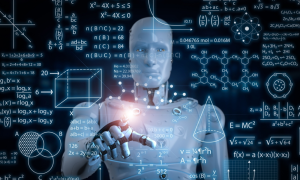Understanding General AI
Understanding General AI: The Quest for Human-Level Intelligence
Introduction
Artificial Intelligence (AI) has made significant strides over the past few decades, transforming industries and enhancing daily life through Narrow AI applications. However, the ultimate goal of AI research is to achieve General AI, also known as Artificial General Intelligence (AGI) or Strong AI. General AI aims to replicate human cognitive abilities, enabling machines to understand, learn, and perform any intellectual task that a human can. This blog explores the concept of General AI, its defining characteristics, the challenges it faces, and its potential implications for the future.
What is General AI?
General AI refers to an advanced form of artificial intelligence with the ability to understand, learn, and apply knowledge across a wide range of tasks, demonstrating human-like cognitive abilities. Unlike Narrow AI, which is designed for specific tasks such as language translation or image recognition, General AI would be capable of generalizing its knowledge and skills to perform a variety of tasks and adapt to new situations autonomously.
Defining Characteristics of General AI
Human-Level Understanding: General AI would possess the ability to understand and process complex information in a manner similar to human cognition, including abstract thinking and reasoning.
Adaptability and Learning: These systems would be capable of learning from experience and adapting to new tasks and environments without requiring specific programming or extensive retraining.
Self-Improvement: General AI would have the capacity for continuous self-improvement, enhancing its performance over time through learning and optimization.
Common Sense Reasoning: General AI would demonstrate common sense reasoning, understanding the world and making decisions based on a comprehensive and intuitive grasp of various contexts.
Autonomous Functioning: These AI systems would operate independently, making decisions and taking actions without human intervention, guided by their own understanding and reasoning.
Challenges in Achieving General AI
Complexity of Human Intelligence: Replicating the vast and nuanced spectrum of human cognitive abilities is a daunting task that requires a deep understanding of how the human brain processes information and learns.
Data and Learning Mechanisms: Developing General AI necessitates vast amounts of diverse data and advanced learning mechanisms capable of processing and integrating this data effectively.
Ethical and Safety Concerns: Ensuring that General AI operates safely and ethically is crucial. There are significant concerns about unintended consequences, misuse, and the potential impact on privacy and security.
Computational Resources: Building and running General AI systems would require immense computational power and resources, posing technical and financial challenges.
Integration and Compatibility: Integrating General AI into existing systems and ensuring its compatibility with current technologies is a complex and ongoing challenge.
Potential Implications of General AI
Economic Transformation: General AI could revolutionize industries by automating complex tasks, leading to significant economic shifts and potentially reducing the need for human labor in many sectors.
Scientific Advancements: General AI could accelerate research and discovery across various fields, from medicine to space exploration, by processing and analyzing data at unprecedented speeds.
Enhanced Quality of Life: General AI could improve healthcare, education, and daily living by providing personalized services and solutions, addressing individual needs more effectively.
Ethical and Social Considerations: The development of General AI raises important ethical and social questions, including the potential for job displacement, privacy concerns, and the need for regulations to ensure its responsible use.
The Path Forward
Achieving General AI remains a long-term goal, requiring ongoing research, innovation, and collaboration across various disciplines. Governments, academic institutions, and private enterprises must work together to advance the field while addressing ethical and societal implications. It is essential to ensure that the development and deployment of General AI prioritize human well-being and benefit society as a whole.
Conclusion
General AI represents the pinnacle of artificial intelligence research, aiming to create machines that can think, learn, and reason like humans. While the path to achieving General AI is fraught with challenges, its potential to transform industries, accelerate scientific discovery, and improve quality of life is immense. As we continue to explore this exciting frontier, it is essential to consider the ethical and societal impacts, ensuring that the development of General AI is guided by principles that prioritize the well-being of humanity.
Understanding and pursuing General AI not only pushes the boundaries of technology but also challenges us to reflect on what it means to be intelligent and how we can harness this potential to create a better future for all.



Comments
Post a Comment